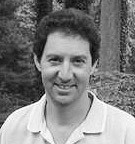Paul Clayman ’78
Open gallery

Finessing Foreign Relations
Ensconced in his office on Capitol Hill, Chief Counsel Paul Clayman evaluates and signs off on all legal matters brought before the U.S. Senate Committee on Foreign Relations—from international treaties and legislation to nominations for U.S. ambassadors worldwide.
“I’m invited to the table because of my education and 15 years’ experience at the U.S. State Department,” says Clayman, who earned a BA in political science at Lewis & Clark and a law degree at American University’s Washington College of Law. “Once there, I rely on common sense and my ability to think things through.”
That’s what he did recently when the House of Representatives overwhelmingly passed a bill that would have severed trade and diplomatic relations with Syria, known for its ties to terrorism. Although the bill had garnered 65 cosponsors in the Senate, Clayman understood that the U.S. would one day need Syrian participation in a regional peace process. So he convinced committee chair Senator Richard Lugar from Indiana to offer an amendment giving the president waiver authority (or political wiggle room) to adjust U.S. action in response to Syrian behavior. President George W. Bush signed the amended bill into law and recently used it to authorize a wide range of diplomatic and commercial activities with Syria.
Clayman accepted his current post in January 2003 at the behest of Lugar, a role model whom he admires and calls a “true internationalist and consensus builder.”
Together, they have written a foreign assistance authorization bill that passed the foreign relations committee 19-0 and now awaits final debate on the Senate floor.
Clayman believes that foreign assistance lies at the epicenter of effective foreign policy, offering the means to rebuild alliances and to empower countries where poverty now propagates terror.
“This bill will help us provide food, shelter, clothing, education, and hope to countries now intent on breeding young boys as suicide bombers,” he says.
Clayman discovered his own calling with the help of mentors at Lewis & Clark, including Donald Balmer, U.G. Dubach Professor Emeritus of Political Science, and Jack Crampton, professor emeritus of political science. After sailing through high school with good grades, Clayman was aghast at the C+ he received from Crampton on a paper he’d spent 35 hours researching and writing.
“He wrote me a five-page single-spaced critique of a five-page double-spaced paper,” says Clayman. “The opportunity to engage with professors at that level as an undergraduate is invaluable,” he says.
As a government servant, Clayman prides himself on his nonpartisan approach to working with people and tackling issues. “Independent thinking and consensus building are very important to me, both personally and professionally,” he says. “I don’t believe anybody in government is right all the time.”
—by Pattie Pace
More L&C Magazine Stories
Lewis & Clark Magazine is located in McAfee on the Undergraduate Campus.
MSC: 19
email magazine@lclark.edu
voice 503-768-7970
fax 503-768-7969
The L&C Magazine staff welcomes letters and emails from readers about topics covered in the magazine. Correspondence must include your name and location and may be edited.
Lewis & Clark Magazine
Lewis & Clark
615 S. Palatine Hill Road MSC 19
Portland OR 97219

